- Travel Advisories |
- Contact Us |
- MyTravelGov |

Find U.S. Embassies & Consulates
Travel.state.gov, congressional liaison, special issuance agency, u.s. passports, international travel, intercountry adoption, international parental child abduction, records and authentications, popular links, travel advisories, mytravelgov, stay connected, legal resources, legal information, info for u.s. law enforcement, replace or certify documents.
Share this page:
Romania Travel Advisory
Travel advisory august 15, 2024, romania - level 1: exercise normal precautions.
Reissued after periodic review without changes. Exercise normal precautions in Romania.
Read the country information page for additional information on travel to Romania.
If you decide to travel to Romania:
- Enroll in the Smart Traveler Enrollment Program ( STEP ) to receive Alerts and make it easier to locate you in an emergency.
- Follow the Department of State on Facebook and X/Twitter .
- Review the Country Security Report for Romania.
- Visit the CDC page for the latest Travel Health Information related to your travel.
- U.S. citizens who travel abroad should always have a contingency plan for emergency situations. Review the Traveler’s Checklist .
Travel Advisory Levels
Assistance for u.s. citizens, romania map, search for travel advisories, external link.
You are about to leave travel.state.gov for an external website that is not maintained by the U.S. Department of State.
Links to external websites are provided as a convenience and should not be construed as an endorsement by the U.S. Department of State of the views or products contained therein. If you wish to remain on travel.state.gov, click the "cancel" message.
You are about to visit:
We’re sorry, this site is currently experiencing technical difficulties. Please try again in a few moments. Exception: request blocked
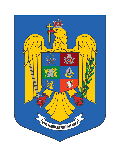
GENERAL INSPECTORATE FOR IMMIGRATION
Legality. Transparency. Respect.
COMING / TRAVELLING TO ROMANIA
Postat în data de -->
27 January 2022
Entry to the territory of Romania may be allowed to foreigners who meet the following conditions:
- possesses a valid document for crossing the state border, which is accepted by the Romanian state;
- possess a visa or residence permit granted under the terms of GEO no. 194/2002 or, as the case may be, possess any authorization that gives the holder the right to transit or stay on the territory of Romania based on the normative acts of the European Union, binding and applicable for Romania, if international agreements have not established otherwise;
- present documents that justify the purpose and conditions of their stay and that prove the existence of appropriate means both for maintenance during the stay and for returning to the country of origin or for transit to another state where it is certain that they will be allowed to enter;
- presents guarantees that they will be allowed to enter the territory of the destination state or that they will leave the territory of Romania, in the case of foreigners in transit;
- no alerts are entered on their names in the National Alert Information System for the purpose of refusing entry to the territory of the Romanian state;
- their names are not entered into the Schengen Information System for the purpose of denying entry;
- they are not reported by the competent authorities as posing a danger to national defense and security, order and public health.
1 Foreigner – a person who does not have Romanian citizenship, the citizenship of another member state of the European Union or the European Economic Area, or the citizenship of the Swiss Confederation;
SHORT STAY VISA
If you want to travel to Romania for a short period of time and you are a citizen of a country for which a visa is required, you must obtain a short-stay visa. Consult the list of states whose citizens do not need a visa to enter Romania. Consult the list of states whose citizens need a visa to enter Romania. The short-stay visa is granted under the conditions and for the purposes provided by the Visa Code. For more details, you can consult the website www.mae.ro section Visas and consular services > Visas. Information for foreign citizens – 2024 > Schengen visa – 2024 or the link https://www.mae.ro/node/30325
The short-stay visa is obtained from diplomatic missions and consular offices of Romania. ( See their list ). Among the states whose citizens need a visa to enter Romania, there are some for whose citizens it is necessary to obtain an invitation approved by the General Inspectorate for Immigration. The invitation can be made by a physical or legal person, a Romanian citizen or a foreigner residing in Romania. ( See the list of states whose citizens need an invitation to obtain a visa to enter Romania ).
When the short stay visa is conditional on obtaining the invitation
If you are the holder of a simple passport, you can obtain a short-stay visa with one or more trips if you present to diplomatic missions or consular offices a written invitation ( model here ), endorsed by the General Inspectorate for Immigration, from a physical or legal person in Romania.
The invitation, accompanied by a series of documents, depending on the purpose, is picked up, completed in two copies and submitted to the headquarters of the territorial formations of the General Inspectorate for Immigration, for approval.
Consult the list of documents required for approval of the invitation depending on the purpose of coming to Romania:
Invitations are approved within 45 days from the date of submission, with the possibility of extending the deadline by 15 days in justified cases.
For foreigners who are going to come to Romania for tourist purposes, in organized groups of at least 20 people, at the request of companies regulated by Law no. 31/1990, republished, with subsequent amendments and additions, members of the National Association of Travel Agencies from Romania, invitations are approved within 30 days from the date of submission.
If approved, a copy of the invitation will be given to the inviter, who will forward it to you. You will present the original invitation to the diplomatic mission or consular office, accompanied by the other documents, to obtain the Romanian visa. You must apply for the visa within 30 days of the approval of the invitation, otherwise it will lose its validity.
The inviter, physical or legal person, will bear the expenses caused by the removal from the territory of Romania of the invited foreigners. The invitation constitutes an enforceable title in the situation where the invited foreigner does not leave Romania until the date on which the right of residence established by the visa ends.
Short stay visa exceptions
There are certain situations when, in order to obtain a short-stay visa, you no longer need an invitation approved by the General Inspectorate for Immigration, in which case you request a visa from diplomatic missions or consular offices with a notarized invitation. ( See exceptions to the invitation procedure ).
In order to approve applications for the granting of short-stay visas, the National Visa Center within the Ministry of Foreign Affairs can request the opinion of our institution, in the cases established by protocol. The General Inspectorate for Immigration issues the opinion for the short-stay visa within 7 working days from the date of receipt of the request, and in well-justified situations the deadline can be extended by another 7 working days. However, there are also situations in which this opinion is no longer needed. ( See the list of exceptions from the I.G.I. )
You have the possibility to calculate your right of residence by using the calculator made available for this purpose by the European Commission.
If you are citizens of countries whose nationals need a visa ( see the list ), you can enter Romania without a visa if you find yourself in one of the following situations:
- you are the holder of a uniform visa, valid for two or multiple entries, of long-stay visas or residence permits issued by Schengen states, you can enter Romania for an uninterrupted stay or for several stays whose duration do not exceed 90 days during any period of 180 days preceding each day of stay on the territory of Romania, if the documents presented are within their validity period and the number of entries and the duration of the authorized stay have not been exhausted.
- you hold a valid long-term residence permit issued by an EU member state – for an uninterrupted stay or for several stays whose total duration does not exceed 90 days during any 180-day period preceding each day of stay on the territory of Romania;
- you are the holder of a small traffic permit, issued in accordance with G.E.O. no. 194/2002 regarding the regime of foreigners in Romania and Regulation of the European Parliament and of the Council (EC) no. 1931/2006 of December 20, 2006 establishing the rules regarding small border traffic at the external land borders of the member states and amending the Schengen Convention, under the conditions in which you exercise your right of movement, in accordance with the small border traffic regime .
Extending the validity of the short-stay visa or the right of residence granted to the foreigner by visa
The duration of validity and/or the right of residence established by the short-stay visa issued by the Romanian authorities or by another Schengen state can be extended in the following situations:
- situations of major force or humanitarian reasons, which prevent him/her from leaving the territory of the Member States before the expiry of the validity period or the duration of stay authorized by the visa. Such an extension shall be granted free of charge;
- substantiated personal reasons justifying the extension of the validity period or length of stay. A fee of 30 EUR is charged for such an extension.
The visa extension must not result in a total stay exceeding 90 days within a 180 day period.
The competent national authority to extend the visa, applied to simple passports, is the General Inspectorate for Immigration and its territorial formations, and for those applied to service or diplomatic passports, it is the Ministry of Foreign Affairs.
The refusal to extend the period of validity and/or the right of stay established by the short-stay visa cannot be contested.
The territorial formations responsible for extending the validity of the short-stay visa or the right of residence granted to the foreigner by visa are:
- THE IMMIGRANT DEPARTAMENT OF THE BUCHAREST MUNICIPALITY, address: Grand Arena Mall, Bld Metalurgiei, no.12-18, District 4, Bucharest, phone: 021/303.70.80 int. 30461;
- IMMIGRATION OFFICE OF CONSTANȚA, Adress: Bulevardul I.C. Brătianu, nr.246, Constanța (with access from the street Matei Millo), phone: 0241-550909;
- IMMIGRATION OFFICE OF TIMIȘ, adress: str. Andrei Mocioni, nr. 8-10, Timișoara, Phone: 0256-402430;
- IMMIGRATION OFFICE OF CLUJ, adress: str. Alexandru Vaida Voevod, nr. 53- 55, (Complex Iulius Mall) Cluj, phone: 0264-555656;
- IMMIGRATION OFFICE OF IAȘI, adress: str. Mihai Costăchescu, nr. 6, Iași, phone: 0232-302315.
REZULTATE OBȚINUTE DE POLIȚIȘTII DE IMIGRĂRI ÎN ULTIMELE 48 DE ORE
4 STRĂINI DEPISTAȚI ÎN SITUAȚII ILEGALE DE CĂTRE POLIȚIȘTII DE IMIGRĂRI, IAR ALȚI 2 AU FOST TRANSFERAȚI DIN GERMANIA ÎN BAZA REGULAMENTULUI DUBLIN

Search Smartraveller

Latest update
Exercise normal safety precautions in Romania.
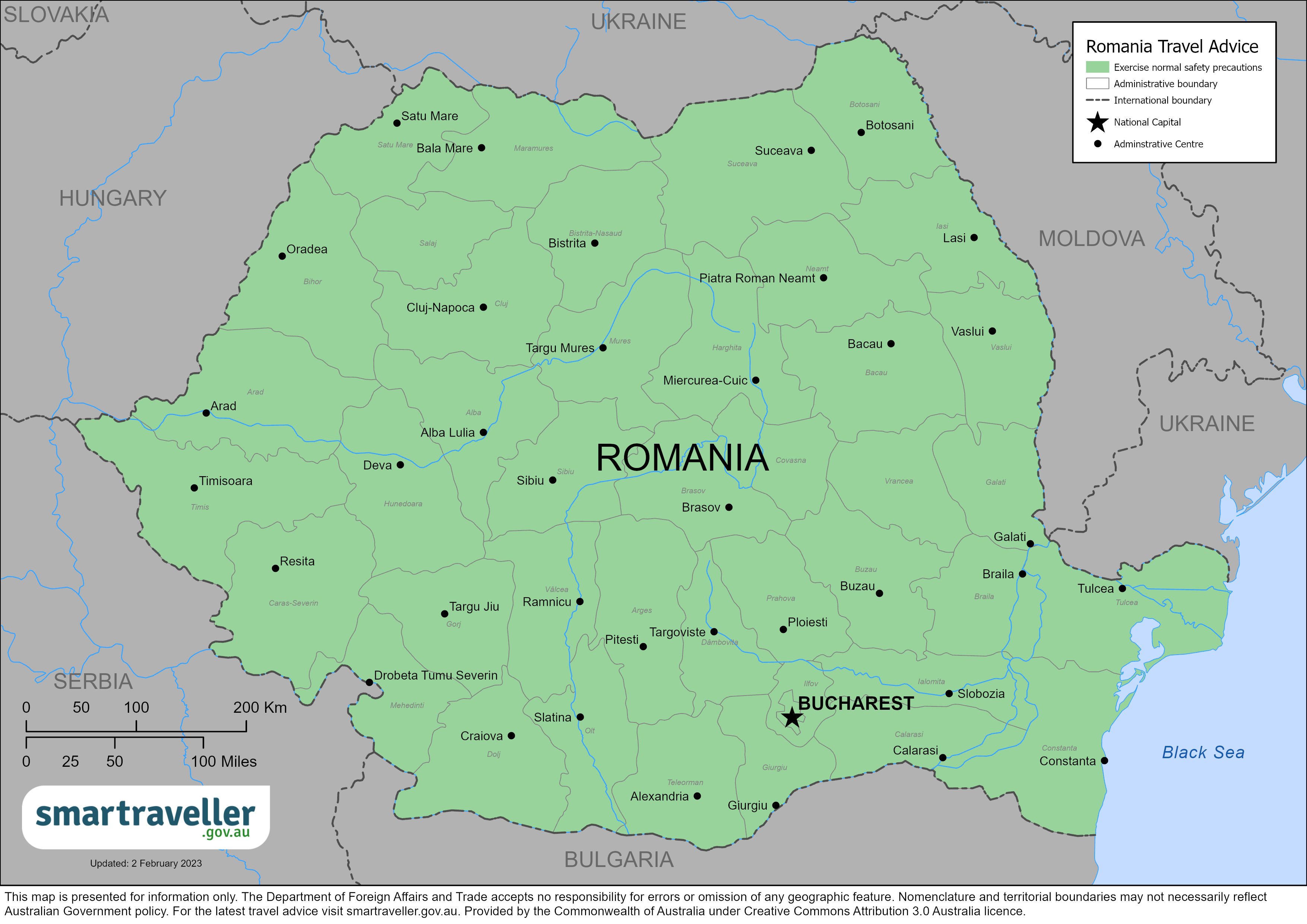
Romania (PDF 324.49 KB)
Europe (PDF 2.62 MB)
Local emergency contacts
Fire and rescue services, medical emergencies.
Call 112 or go to the hospital.
Call 112 or go to the local police station.
Advice levels
- The Russian invasion of Ukraine is ongoing. The security situation continues to be volatile. Do not travel from Romania to Ukraine.
- Pickpocketing and bag-snatching occur. Thefts from hotel rooms are common. Assault and theft happen on intercity trains. Keep your personal belongings close. Lock hotel and train compartment doors from the inside.
- Drink spiking is an issue, especially in Bucharest's Old Town. Don't accept food, drinks, gum or cigarettes from people you've just met.
- Thieves posing as police officers may ask to see your ID and wallet. Romanian police won't stop you at random to do this. If you suspect someone is posing as a police officer, ask to see their identification.
- Financial, dating and marriage scams occur. Only use ATMs in banks, shops and shopping centres, especially at night. Always keep your credit card in sight. Be wary of people you've met online.
Full travel advice: Safety
- Rabies occurs in wild and domestic animals. If an animal scratches or bites you, get medical treatment immediately.
- West Nile virus can occur. Make sure your accommodation is insect-proof. Use insect repellent.
- Measles has occurred in recent years. Ensure your vaccinations are up to date before you travel.
- Waterborne, foodborne and other infectious diseases are common. Drink boiled or bottled water. Avoid ice cubes and raw or undercooked food.
- Medical facilities and supplies are limited. You'll need to be evacuated if you become seriously ill or injured. Make sure your insurance covers this.
Full travel advice: Health
- Penalties for drug offences are severe. They can include jail sentences of up to 20 years.
- By law, you must always carry a photo ID. Keep your passport in a safe place. Carry a photocopy.
- Taking photos of airports, military sites, or other secure locations is illegal.
- It's illegal to engage in sex work or have sexual relations with a person under 18.
- Same-sex relationships are legal in Romania but not widely accepted.
Full travel advice: Local laws
- You don't need a visa if you're a tourist staying for less than 90 days or transiting through Romania. For other types of travel, you'll need a visa.
- Romania partially joined the Schengen area on 31 March. Border checks will cease between Romania and other Schengen countries for air or sea travel. Checks continue to be undertaken at land borders between Romania and other Schengen countries.
Entry and exit conditions can change at short notice. Contact an Embassy or Consulate of Romania for details about visas, customs and quarantine rules.
Full travel advice: Travel
Local contacts
- The Consular Services Charter tells you what the Australian Government can and can't do to help when you're overseas.
- The Australian Consulate in Bucharest provides limited consular and passport assistance.
- You can get full consular help from the Australian Embassy in Athens .
- Follow the embassy's social media accounts to stay up to date with local information.
Full travel advice: Local contacts
Full advice
Border with ukraine.
The Russian invasion of Ukraine is ongoing. Heavy fighting is occurring in parts of eastern and southern Ukraine. Missile strikes and attacks are ongoing in some locations across the country, including in major cities. There have also been attacks on Ukraine's Danube ports along the border with Romania. The security situation continues to be volatile. Do not travel from Romania to Ukraine. There's a risk to life.
If you have arrived in Romania from Ukraine and are in need of assistance, contact the Consular Emergency Centre on 1300 555 135 in Australia or +61 2 6261 3305 outside Australia.
Pickpocketing and bag-snatching can happen, usually:
- near hotels
- on public transport, especially to and from the airport
- in train stations
- in airport terminals
Organised groups of thieves target travellers. These groups may include children.
Thefts from hotel rooms are common.
Thefts and assaults take place on intercity trains.
Drink spiking is an issue, especially in Centrul Vechi (the old town in Bucharest).
To protect yourself from crime:
- keep your personal belongings close, particularly near hotels and on public transport
- avoid walking in quiet and poorly lit streets, especially at night
- lock hotel and train compartment doors from the inside
- don't leave luggage unattended in your train compartment
- don't accept food, drinks, gum or cigarettes from people you've just met
- don't leave food or drinks unattended
More information:
- Avoiding danger
- Partying safely
Sometimes thieves pretend to be police officers and ask for ID and wallets.
Romanian police won't stop you at random to ask for your ID or wallet. However, they may conduct checks if you don't comply with local laws.
If you suspect someone is posing as a police officer:
- ask to see their identification
- don't hand over your personal belongings
- offer to go to the nearest police station with them to check their identity
Financial scams , including credit card and ATM fraud, are common.
Internet fraud, including dating and marriage scams, also occur in Romania.
To reduce your risk of card theft and scams:
- only use ATMs in banks, shops and shopping centres, especially at night
- always keep your credit card in sight
- be alert to internet scams and other fraud
- be cautious if someone asks for your bank account details
- be wary of connections you make through internet dating schemes or chat rooms
Cyber security
You may be at risk of cyber-based threats during overseas travel to any country. Digital identity theft is a growing concern. Your devices and personal data can be compromised, especially if you're connecting to Wi-Fi, using or connecting to shared or public computers, or to Bluetooth.
Social media can also be risky in destinations where there are social or political tensions or laws that may seem unreasonable by Australian standards. Travellers have been arrested for things they have said on social media. Don't comment on local or political events on your social media.
More information:
- Cyber security when travelling overseas
Civil unrest and political tension
Protests occur in Bucharest and other major cities.
Public protests and events that draw large groups of people can turn violent.
They may also disrupt services, traffic and public transport.
To stay safe:
- avoid demonstrations
- follow the advice of local authorities
- monitor local media
- Demonstrations and civil unrest
While there have been no recent terrorist attacks in Romania, they can still happen.
In recent years, terrorists have attacked several European cities.
European security services have also disrupted several planned attacks.
To protect yourself:
- be alert to possible threats
- report anything suspicious to the police
- monitor the media for possible threats
- take official warnings seriously
If there's an attack, leave the area as soon as it's safe. Avoid the affected area in case of secondary attacks.
Terrorism is a threat worldwide.
Tours and adventure travel
Transport and tour operators don't always follow safety and maintenance standards. This includes operators of adventure activities.
If you plan to do an adventure activity :
- check if your travel insurance policy covers it
- ask about and insist on minimum safety requirements
- always use available safety gear, such as life jackets or seatbelts
If proper safety equipment isn't available, use another provider.
Climate and natural disasters
Serious earthquakes are rare, but Romania is in a seismically active region and earth tremors are common.
Wildfires are becoming more frequent in the summer months. Torrential rain and flash flooding can happen throughout the year.
If there's a natural disaster or severe weather :
- secure your passport in a safe, waterproof place
- keep in contact with your friends and family
- closely monitor the media and other local sources of information
Register with the Global Disaster Alert and Coordination System to receive alerts on major disasters.
Travel insurance
Get comprehensive travel insurance before you leave.
Your policy needs to cover all overseas medical costs, including medical evacuation. The Australian Government won't pay for these costs.
If you can't afford travel insurance, you can't afford to travel. This applies to everyone, no matter how healthy and fit you are.
If you're not insured, you may have to pay many thousands of dollars up-front for medical care.
- what activities and care your policy covers
- that your insurance covers you for the whole time you'll be away
Physical and mental health
Consider your physical and mental health before you travel, especially if you have an existing medical condition.
See your doctor or travel clinic to:
- have a basic health check-up
- ask if your travel plans may affect your health
- plan any vaccinations you need.
Do this at least 8 weeks before you leave.
If you have immediate concerns for your welfare, or the welfare of another Australian, call the 24-hour Consular Emergency Centre on +61 2 6261 3305 or contact your nearest Australian Embassy, High Commission or Consulate to discuss counselling hotlines and services available in your location.
- General health advice
- Healthy holiday tips (Healthdirect Australia)
Medications
Not all medication available over the counter or by prescription in Australia is available in other countries. Some may even be considered illegal or a controlled substance, even if prescribed by an Australian doctor.
If you plan to bring medication, check if it's legal in Romania. Take enough legal medication for your trip.
Carry a copy of your prescription or a letter from your doctor stating:
- what the medication is
- your required dosage
- that it's for personal use
Health risks
Rabies occurs in wild and domestic animals.
Ask your travel doctor about getting the rabies vaccine before you travel.
Get medical treatment immediately if an animal scratches or bites you.
- Infectious diseases
Tick-borne encephalitis
Tick-borne encephalitis is a risk, especially if you travel through forests and rural areas.
Ticks are active in spring from March to June and autumn from September to December.
West Nile virus
West Nile virus (WNV) is a disease spread by mosquitoes. There's no vaccine to prevent it.
The Romanian Health Ministry has confirmed cases of West Nile virus in:
To protect yourself from disease:
- make sure your accommodation is insect-proof
- use insect repellent
- wear long, loose, light-coloured clothing
An outbreak of measles has spread across Romania in recent years.
Make sure your vaccinations are up to date before you travel.
Other health risks
Waterborne, foodborne and other infectious diseases are common. These include:
- tuberculosis
Serious outbreaks sometimes occur.
To reduce your risk of illness:
- drink boiled or bottled water with intact seals
- avoid ice cubes
- avoid raw and undercooked food
Get medical advice if you have a fever or diarrhoea.
Medical care
Medical facilities.
Medical facilities in Romania are below Australian standards.
Some medical supplies are limited, particularly outside major cities.
Treatment can be expensive, and doctors often require payment up-front.
Ambulance services are unreliable in some areas outside larger cities. Psychological and psychiatric services are limited outside major cities.
Romania has 3 decompression chambers. All are in the port city of Constanta on the Black Sea coast.
If you become seriously ill or injured, you'll need to be evacuated to a place with better facilities. Medical evacuation can be very expensive.
You're subject to all local laws and penalties, including those that may appear harsh by Australian standards. Research local laws before travelling.
If you're arrested or jailed, the Australian Government will do what it can to help you under our Consular Services Charter . But we can't get you out of trouble or out of jail.
Penalties for drug offences are severe. They can include prison sentences of up to 20 years.
- Carrying or using drugs
Always carry a photo ID.
Keep your passport in a safe place and carry a photocopy.
In Romania, it's illegal to:
- take photos of airports, military sites or other secure locations
- engage in sex work or pay for sexual services
- have sexual relations with a person under 18
Australian laws
Some Australian criminal laws still apply when you're overseas. If you break these laws, you may face prosecution in Australia.
- Staying within the law and respecting customs
Local customs
Same-sex relationships are legal. However, they're not widely accepted in Romanian society.
Avoid public displays of affection.
- Advice for LGBTI travellers
Dual citizenship
Dual nationals are legally recognised in Romania.
- Dual nationals
Visas and border measures
Every country or territory decides who can enter or leave through its borders. For specific information about the evidence you'll need to enter a foreign destination, check with the nearest embassy, consulate or immigration department of the destination you're entering.
You don't need a visa to enter as a tourist for up to 90 days. You'll need a visa for other types of travel.
Romania partially joined the Schengen area on 31 March. Border checks will cease between Romania and other Schengen countries for air or sea travel.
Checks continue at land borders between Romania and other Schengen countries.
If you're travelling without a visa, ensure your entire visit to the Schengen area, including your stay in Romania, is within the 90-day limit. This applies to all arrivals (air, land and sea).
- Visas and entry requirements in Europe and the Schengen Area
Other formalities
Travel with children.
Special entry rules apply to children aged under 18 years, including Australian-Romanian dual nationals.
The child must be accompanied by an adult and have their own passport.
If you're a parent or guardian travelling alone with a child , you must carry a legal permission document signed by the non-travelling parent.
If this isn't possible, you'll need:
- a death certificate of a parent registered on the child's birth certificate
- a court order granting sole custody to the travelling (or authorising) parent
The documents must be translated into Romanian.
- Advice for people travelling with children
- Embassy or consulate of Romania
Some countries won't let you enter unless your passport is valid for 6 months after you plan to leave that country. This can apply even if you're just transiting or stopping over.
Some foreign governments and airlines apply the rule inconsistently. Travellers can receive conflicting advice from different sources.
You can end up stranded if your passport is not valid for more than 6 months.
The Australian Government does not set these rules. Check your passport's expiry date before you travel. If you're not sure it'll be valid for long enough, consider getting a new passport .
Lost or stolen passport
Your passport is a valuable document. It's attractive to people who may try to use your identity to commit crimes.
Some people may try to trick you into giving them your passport. Always keep it in a safe place.
If your passport is lost or stolen, tell the Australian Government as soon as possible:
- In Australia, contact the Australian Passport Information Service
- If you're overseas, contact the nearest Australian embassy or consulate
Passport with 'X' gender identifier
Although Australian passports comply with international standards for sex and gender, we can't guarantee that a passport showing 'X' in the sex field will be accepted for entry or transit by another country. Contact the nearest embassy, high commission or consulate of your destination before you arrive at the border to confirm if authorities will accept passports with 'X' gender markers.
- LGBTI travellers
The local currency is the Romanian Leu (RON).
Romania is a member of the European Union (EU).
Declare cash over 10,000 euros or equivalent if you're travelling between Romania and non-EU countries. This covers all forms of currency, not only cash.
If you don't declare or give incorrect information, you'll need to pay a fine.
You don't need to declare cash if you're travelling to or from another EU country.
Romania is largely a cash economy. However, credit card and debit card use is increasing.
It's illegal to change money on the streets. Exchange money at banks, large hotels or exchange bureaus.
Local travel
Accessibility.
If you have a disability , you may encounter limited accessibility in some parts of Romania.
Public transport and building accessibility is better:
- in Bucharest and other large cities
- at international airports and large hotels
Driving permit
To drive in Romania, you'll need both:
- your current Australian driver's licence
- an International Driving Permit (IDP)
Driving without an IDP could void your travel and vehicle insurance.
If you stay longer than 185 days, you can apply for a Romanian driver's licence. Do this through the General Directorate for Driving Licences and Car Registration.
- DRPCIV (Romanian)
- Driving or riding
Road travel
Romania has the highest rate of road fatalities of all EU countries. Take care on the road.
Major city streets and inter-city highways are generally in good condition.
Most other roads are poorly maintained, badly lit and narrow.
Additional driving hazards include:
- poor driving standards
- wet and icy roads during winter
- stray dogs, wandering livestock and horse-drawn carts on the roads
If you need emergency roadside help, call 9271.
Learn Romanian traffic laws before you drive. Be aware that:
- the minimum age for driving is 18 years
- children aged under 12 years can't sit in the front seat of a vehicle
- driving with a blood alcohol reading above 0% is illegal
- use of mobile phones while driving is banned. Only hands-free is permitted
- wearing a seatbelt is mandatory
If you drink and drive, you may:
- lose your licence
- receive a prison sentence of up to 5 years
If you're involved in an accident, you must take a breathalyser test. Refusing to take this test is a crime.
Police strictly enforce traffic laws. They conduct frequent checks, including radar speed checks. You may lose your licence and have to pay a fine if caught.
You need a road toll sticker (Rovinieta) to use national roads. Buy one online or from petrol stations or border points. Driving without a sticker may lead to a fine.
Weather conditions
Road travel can be dangerous when roads are wet or covered with ice and snow.
Winter tyres are mandatory on snow-covered roads. Roads become snow-covered most often from November to March.
In extreme weather conditions:
- use tyre chains when driving
- check weather alerts on meteoalarm
Vehicle insurance
Ask your travel insurer whether your policy covers you if you plan to hire a car or other vehicle.
Also, ask if any restrictions apply. Your cover may only be valid if you're licensed for that vehicle type in Australia.
Motorcycles
Ask your travel insurer whether your policy covers you when using a motorbike, quad bike or similar vehicle.
Always wear a helmet.
Authorised taxis are generally safe and reliable.
At airports, you can find them in ranks outside the arrivals terminal.
These vehicles:
- display taxi registration, licensing and tariff information
- have an airport sign on both sides of the vehicle
To avoid overcharging and other problems:
- only use authorised taxis
- avoid taxi service offers from touts at airports, train stations and other public places
DFAT doesn't provide information on the safety of individual commercial airlines or flight paths.
Check Romania's air safety profile with the Aviation Safety Network.
Emergencies
Depending on what you need, contact your:
- family and friends
- travel agent
- insurance provider
English-speaking operators are available.
Always get a police report when you report a crime.
Your insurer should have a 24-hour emergency number.
Consular contacts
Read the Consular Services Charter for what the Australian Government can and can't do to help you overseas.
Australia has a consulate in Bucharest, headed by an Honorary Consul.
The consulate provides limited consular services and doesn't issue passports.
Australian Consulate, Bucharest
Honorary Consul The Group 3 Praga St, District 1 Bucharest 011801 Romania Phone: (+4 037) 406 0845 or (+4 021) 206 2200 Fax: (+4 031) 107 1378 Email: [email protected]
You can get full consular help from the Australian Embassy in Athens.
Australian Embassy, Athens
5 Hatziyianni Mexi Street, Level 2 Athens 115 28, Greece Phone: +30 210 870 4000 Fax: +30 210 870 4111 Website: greece.embassy.gov.au Facebook: Australia in Greece
Check the Embassy website for details about opening hours and any temporary closures.
24-hour Consular Emergency Centre
In a consular emergency, if you can't contact an embassy, call the 24-hour Consular Emergency Centre on:
- +61 2 6261 3305 from overseas
- 1300 555 135 in Australia

Travelling to Romania?
Sign up to get the latest travel advice updates..
Be the first to know official government advice when travelling.
We’re sorry, this site is currently experiencing technical difficulties. Please try again in a few moments. Exception: request blocked
- Skip to main content
- Skip to "About this site"
Language selection
Search travel.gc.ca.
Help us to improve our website. Take our survey !
COVID-19: travel health notice for all travellers
Romania travel advice
Latest updates: Entry and exit requirements – added information on temporary entry under CETA
Last updated: August 30, 2024 12:54 ET
On this page
Safety and security, entry and exit requirements, laws and culture, natural disasters and climate, romania - take normal security precautions.
Take normal security precautions in Romania.
Back to top
Violent crime is rare.
Pickpocketing, purse snatching and mugging occur, particularly in Bucharest and other urban centres. Be vigilant in crowded areas such as busy streets, public transportation, train stations and airport terminals. Avoid walking alone after dark.
Organized groups of thieves are particularly active in public transport hubs, such as train and bus stations, and subways.
Theft can occur on intercity trains. Don’t leave your compartment unattended. Always lock the door from the inside. Don’t travel on your own, particularly on overnight trains.
Theft from hotel rooms is common. Make sure your valuables are always locked away if leaving them in the room while you’re away.
Ensure that your personal belongings, including your passport and other travel documents, are secure at all times, particularly on public transportation. Avoid showing signs of affluence and carrying large sums of cash.
There is a threat of terrorism in Europe. Terrorists have carried out attacks in several European cities and further attacks are likely.
Targets could include:
- government buildings, including schools
- places of worship
- airports and other transportation hubs and networks
- public areas such as tourist attractions, restaurants, bars, coffee shops, shopping centres, markets, hotels and other sites frequented by foreigners
Always be aware of your surroundings when in public places. Be particularly vigilant if attending sporting events and during religious holidays and other public celebrations, as terrorists have used such occasions to mount attacks.
Individuals posing as plainclothes police officers may ask you to see your foreign currency and passports. Politely decline to cooperate, but offer to go to the nearest police station to sort out the issue.
Some bars and nightclubs may try to charge exorbitant prices. Discussions about overcharging may lead to threats of violence and security guards may force you to pay.
Credit card and ATM fraud occurs. Be cautious when using debit or credit cards:
- pay careful attention when your cards are being handled by others
- use ATMs located in well-lit public areas or inside a bank or business
- avoid using card readers with an irregular or unusual feature
- cover the keypad with one hand when entering your PIN
- check for any unauthorized transactions on your account statements
Cybercrime occurs. Perpetrators may compromise public Wi-Fi networks to steal credit card or personal information.
- Avoid using public Wi-Fi networks
- Avoid making purchases on unencrypted websites
- Be cautious when posting information on social media
- Be particularly vigilant when contacting or meeting individuals known over the internet
Overseas fraud
Spiked food and drinks
Never leave food or drinks unattended or in the care of strangers. Be wary of accepting snacks, beverages, gum or cigarettes from new acquaintances, as the items may contain drugs that could put you at risk of sexual assault and robbery.
Demonstrations
Demonstrations take place from time to time. Even peaceful demonstrations can turn violent at any time. They can also lead to disruptions to traffic and public transportation.
- avoid areas where demonstrations and large gatherings are taking place
- follow the instructions of local authorities
- monitor local media for information on ongoing demonstrations
Mass gatherings (large-scale events)
Road safety
Road conditions and road safety can vary greatly throughout the country. With the exception of major city streets and intercity highways, many roads are in disrepair, poorly lit, narrow and without marked lanes.
Driving can be hazardous due to aggressive drivers, erratic driving behaviour and excessive speeds.
Don’t drive after dark outside of major cities due to unsafe conditions. These can include horse-drawn carts without lights and wandering livestock on the road.
Public transportation
Use only licensed metered taxis that display their price lists. Verify the tariffs on the taxi’s window before boarding and ensure that the meter displays the correct tariff. Tariffs are more expensive at night and when travelling outside of the city limits.
At the Bucharest Henri Coandă International Airport, arrange for a taxi from the taxis booth within the arrivals terminal to get a fair rate. Don’t hail a taxi on the street; instead, order one from your hotel or use a trusted ride-sharing app.
Avoid travelling alone in a taxi to remote areas.
Rail services safety standards are generally good.
We do not make assessments on the compliance of foreign domestic airlines with international safety standards.
Information about foreign domestic airlines
Every country or territory decides who can enter or exit through its borders. The Government of Canada cannot intervene on your behalf if you do not meet your destination’s entry or exit requirements.
We have obtained the information on this page from the Romanian authorities. It can, however, change at any time.
Verify this information with the Foreign Representatives in Canada .
schengen_area
- Schengen area
Romania entered the Schengen area on March 31, 2024. Air and maritime border controls are no longer in effect. Land border controls will remain in effect until further notice.
Entry requirements vary depending on the type of passport you use for travel.
Before you travel, check with your transportation company about passport requirements. Its rules on passport validity may be more stringent than the country’s entry rules.
Regular Canadian passport
Your passport must be valid for at least 3 months beyond the date you expect to leave Romania.
Passport for official travel
Different entry rules may apply.
Official travel
Passport with “X” gender identifier
While the Government of Canada issues passports with an “X” gender identifier, it cannot guarantee your entry or transit through other countries. You might face entry restrictions in countries that do not recognize the “X” gender identifier. Before you leave, check with the closest foreign representative for your destination.
Other travel documents
Different entry rules may apply when travelling with a temporary passport or an emergency travel document. Before you leave, check with the closest foreign representative for your destination.
Useful links
- Foreign Representatives in Canada
- Canadian passports
Tourist visa: not required for stays up to 90 days within any 180-day period Business visa: not required for stays up to 90 days within any 180-day period Student visa: required
The 90-day, visa-free period begins upon initial entry into Romania.
If you plan to return to Romania within 180 days of your last visit, authorities will only allow you entry for what’s left of your 90-day, visa-free exemption. If you’ve already spent 90 days within any 180 day-period, authorities may refuse you entry.
Guide to temporary entry into Romania under CETA
Romania is a Schengen area country. Canadian citizens do not need a visa for travel to countries within the Schengen area. However, visa-free travel only applies to stays of up to 90 days in any 180-day period. Stays are cumulative and include visits to any Schengen area country.
If you plan to stay in the Schengen area for a longer period of time, you will need a visa. You must contact the high commission or embassy of the country or countries you are travelling to and obtain the appropriate visa(s) prior to travel.
- Foreign Representatives in Canada
- Children and travel
Romanian authorities consider a child born to a Romanian parent as a citizen of Romania, even if the child was born in Canada and has a Canadian passport.
When leaving Romania, a Romanian citizen under the age of 18 must:
- travel with one of the following
- both parents
- one parent with the written consent of the non-accompanying parent
- their legal guardian(s)
- an authorized person over the age of 18 who has passed a criminal record check.
- carry a standard statement of consent to travel from their parent(s) or guardian(s), notarized by Romanian authorities. This does not apply to Romanian children returning to their proven country of legal residence.
Entry and exit requirements for children under the age of 18 may change without notice. Parents of children travelling alone or with one parent should contact the nearest Romanian embassy or consulate before departing for Romania to confirm that each child meets the latest entry and exit requirements.
- Travelling with children
- Terms of leaving Romania with Romanian minors (in Romanian)
Yellow fever
Learn about potential entry requirements related to yellow fever (vaccines section).
Relevant Travel Health Notices
- Global Measles Notice - 13 March, 2024
- COVID-19 and International Travel - 13 March, 2024
This section contains information on possible health risks and restrictions regularly found or ongoing in the destination. Follow this advice to lower your risk of becoming ill while travelling. Not all risks are listed below.
Consult a health care professional or visit a travel health clinic preferably 6 weeks before you travel to get personalized health advice and recommendations.
Routine vaccines
Be sure that your routine vaccinations , as per your province or territory , are up-to-date before travelling, regardless of your destination.
Some of these vaccinations include measles-mumps-rubella (MMR), diphtheria, tetanus, pertussis, polio, varicella (chickenpox), influenza and others.
Pre-travel vaccines and medications
You may be at risk for preventable diseases while travelling in this destination. Talk to a travel health professional about which medications or vaccines may be right for you, based on your destination and itinerary.
Yellow fever is a disease caused by a flavivirus from the bite of an infected mosquito.
Travellers get vaccinated either because it is required to enter a country or because it is recommended for their protection.
- There is no risk of yellow fever in this country.
Country Entry Requirement*
- Proof of vaccination is not required to enter this country.
Recommendation
- Vaccination is not recommended.
* It is important to note that country entry requirements may not reflect your risk of yellow fever at your destination. It is recommended that you contact the nearest diplomatic or consular office of the destination(s) you will be visiting to verify any additional entry requirements.
About Yellow Fever
Yellow Fever Vaccination Centres in Canada
There is a risk of hepatitis A in this destination. It is a disease of the liver. People can get hepatitis A if they ingest contaminated food or water, eat foods prepared by an infectious person, or if they have close physical contact (such as oral-anal sex) with an infectious person, although casual contact among people does not spread the virus.
Practise safe food and water precautions and wash your hands often. Vaccination is recommended for all travellers to areas where hepatitis A is present.
Tick-borne encephalitis (TBE) is a risk in some areas of this destination. It is a viral disease that affects the central nervous system (brain and spinal cord). It is spread to humans by the bite of infected ticks or occasionally when unpasteurized milk products are consumed.
Travellers to areas where TBE is found may be at higher risk during April to November, and the risk is highest for people who hike or camp in forested areas.
Protect yourself from tick bites . The vaccine is not available in Canada. It may be available in the destination you are travelling to.
In this destination, rabies may be present in some wildlife species, including bats. Rabies is a deadly disease that spreads to humans primarily through bites or scratches from an infected animal.
If you are bitten or scratched by an animal while travelling, immediately wash the wound with soap and clean water and see a health care professional.
Before travel, discuss rabies vaccination with a health care professional. It may be recommended for travellers who will be working directly with wildlife.
Measles is a highly contagious viral disease. It can spread quickly from person to person by direct contact and through droplets in the air.
Anyone who is not protected against measles is at risk of being infected with it when travelling internationally.
Regardless of where you are going, talk to a health care professional before travelling to make sure you are fully protected against measles.
Hepatitis B is a risk in every destination. It is a viral liver disease that is easily transmitted from one person to another through exposure to blood and body fluids containing the hepatitis B virus. Travellers who may be exposed to blood or other bodily fluids (e.g., through sexual contact, medical treatment, sharing needles, tattooing, acupuncture or occupational exposure) are at higher risk of getting hepatitis B.
Hepatitis B vaccination is recommended for all travellers. Prevent hepatitis B infection by practicing safe sex, only using new and sterile drug equipment, and only getting tattoos and piercings in settings that follow public health regulations and standards.
Coronavirus disease (COVID-19) is an infectious viral disease. It can spread from person to person by direct contact and through droplets in the air.
It is recommended that all eligible travellers complete a COVID-19 vaccine series along with any additional recommended doses in Canada before travelling. Evidence shows that vaccines are very effective at preventing severe illness, hospitalization and death from COVID-19. While vaccination provides better protection against serious illness, you may still be at risk of infection from the virus that causes COVID-19. Anyone who has not completed a vaccine series is at increased risk of being infected with the virus that causes COVID-19 and is at greater risk for severe disease when travelling internationally.
Before travelling, verify your destination’s COVID-19 vaccination entry/exit requirements. Regardless of where you are going, talk to a health care professional before travelling to make sure you are adequately protected against COVID-19.
The best way to protect yourself from seasonal influenza (flu) is to get vaccinated every year. Get the flu shot at least 2 weeks before travelling.
The flu occurs worldwide.
- In the Northern Hemisphere, the flu season usually runs from November to April.
- In the Southern Hemisphere, the flu season usually runs between April and October.
- In the tropics, there is flu activity year round.
The flu vaccine available in one hemisphere may only offer partial protection against the flu in the other hemisphere.
The flu virus spreads from person to person when they cough or sneeze or by touching objects and surfaces that have been contaminated with the virus. Clean your hands often and wear a mask if you have a fever or respiratory symptoms.
Safe food and water precautions
Many illnesses can be caused by eating food or drinking beverages contaminated by bacteria, parasites, toxins, or viruses, or by swimming or bathing in contaminated water.
- Learn more about food and water precautions to take to avoid getting sick by visiting our eat and drink safely abroad page. Remember: Boil it, cook it, peel it, or leave it!
- Avoid getting water into your eyes, mouth or nose when swimming or participating in activities in freshwater (streams, canals, lakes), particularly after flooding or heavy rain. Water may look clean but could still be polluted or contaminated.
- Avoid inhaling or swallowing water while bathing, showering, or swimming in pools or hot tubs.
Travellers' diarrhea is the most common illness affecting travellers. It is spread from eating or drinking contaminated food or water.
Risk of developing travellers' diarrhea increases when travelling in regions with poor standards of hygiene and sanitation. Practise safe food and water precautions.
The most important treatment for travellers' diarrhea is rehydration (drinking lots of fluids). Carry oral rehydration salts when travelling.
Insect bite prevention
Many diseases are spread by the bites of infected insects such as mosquitoes, ticks, fleas or flies. When travelling to areas where infected insects may be present:
- Use insect repellent (bug spray) on exposed skin
- Cover up with light-coloured, loose clothes made of tightly woven materials such as nylon or polyester
- Minimize exposure to insects
- Use mosquito netting when sleeping outdoors or in buildings that are not fully enclosed
To learn more about how you can reduce your risk of infection and disease caused by bites, both at home and abroad, visit our insect bite prevention page.
Find out what types of insects are present where you’re travelling, when they’re most active, and the symptoms of the diseases they spread.

Animal precautions
Some infections, such as rabies and influenza, can be shared between humans and animals. Certain types of activities may increase your chance of contact with animals, such as travelling in rural or forested areas, camping, hiking, and visiting wet markets (places where live animals are slaughtered and sold) or caves.
Travellers are cautioned to avoid contact with animals, including dogs, livestock (pigs, cows), monkeys, snakes, rodents, birds, and bats, and to avoid eating undercooked wild game.
Closely supervise children, as they are more likely to come in contact with animals.
Person-to-person infections
Stay home if you’re sick and practise proper cough and sneeze etiquette , which includes coughing or sneezing into a tissue or the bend of your arm, not your hand. Reduce your risk of colds, the flu and other illnesses by:
- washing your hands often
- avoiding or limiting the amount of time spent in closed spaces, crowded places, or at large-scale events (concerts, sporting events, rallies)
- avoiding close physical contact with people who may be showing symptoms of illness
Sexually transmitted infections (STIs) , HIV , and mpox are spread through blood and bodily fluids; use condoms, practise safe sex, and limit your number of sexual partners. Check with your local public health authority pre-travel to determine your eligibility for mpox vaccine.
Tuberculosis is an infection caused by bacteria and usually affects the lungs.
For most travellers the risk of tuberculosis is low.
Travellers who may be at high risk while travelling in regions with risk of tuberculosis should discuss pre- and post-travel options with a health care professional.
High-risk travellers include those visiting or working in prisons, refugee camps, homeless shelters, or hospitals, or travellers visiting friends and relatives.
Medical services and facilities
Medical services and facilities vary throughout the country. They may not be up to the standards you might expect in Canada. Private hospitals and clinics located in cities are often better staffed and equipped than public or rural facilities. Most medical facilities expect cash payment at the time of service.
Make sure you get travel insurance that includes coverage for medical evacuation and hospital stays.
Health and safety outside Canada
Keep in Mind...
The decision to travel is the sole responsibility of the traveller. The traveller is also responsible for his or her own personal safety.
Be prepared. Do not expect medical services to be the same as in Canada. Pack a travel health kit , especially if you will be travelling away from major city centres.
You must abide by local laws.
Learn about what you should do and how we can help if you are arrested or detained abroad .
Transfer to a Canadian prison
Canada and Romania are signatories to the Convention on the Transfer of Sentenced Persons. This enables a Canadian imprisoned in Romania to request a transfer to a Canadian prison to complete a sentence. The transfer requires the agreement of both Canadian and Romania authorities.
This process can take a long time, and there is no guarantee that the transfer will be approved by either or both sides.
Identification
You must carry photo identification at all times as local authorities can ask you to prove your identity. A photocopy of your passport is acceptable, and will help in case of loss or seizure of the original document.
Penalties for possession, use or trafficking of illegal drugs are severe. Convicted offenders can expect prison sentences of up to 15 years and heavy fines.
Drugs, alcohol and travel
Photography
It is illegal to photograph government buildings and military installations, unless prior permission has been obtained from local authorities.
Dual citizenship
Dual citizenship is legally recognized in Romania.
If you are a Canadian citizen, but also a citizen of Romania, our ability to offer you consular services may be limited while you're there. You may also be subject to different entry/exit requirements .
Dual citizens
International Child Abduction
The Hague Convention on the Civil Aspects of International Child Abduction is an international treaty. It can help parents with the return of children who have been removed to or retained in certain countries in violation of custody rights. The convention applies between Canada and Romania.
If your child was wrongfully taken to, or is being held in Romania, and if the applicable conditions are met, you may apply for the return of your child to the Romanian court.
If you are in this situation:
- act as quickly as you can
- contact the Central Authority for your province or territory of residence for information on starting an application under The Hague Convention
- consult a lawyer in Canada and in Romania to explore all the legal options for the return of your child
- report the situation to the nearest Canadian government office abroad or to the Vulnerable Children's Consular Unit at Global Affairs Canada by calling the Emergency Watch and Response Centre
If your child was removed from a country other than Canada, consult a lawyer to determine if The Hague Convention applies.
Be aware that Canadian consular officials cannot interfere in private legal matters or in another country's judicial affairs.
- List of Canadian Central Authorities for the Hague Convention
- International Child Abductions: A guide for affected parents
- The Hague Convention – Hague Conference on Private International Law
- Canadian embassies and consulates by destination
- Request emergency assistance
You must carry an international driving permit along with a valid Canadian driver’s licence in order to drive or to rent a vehicle in Romania. However, your Canadian driver’s licence is only considered valid for up to 90 days. For stays longer than 90 days, you will need to exchange your driver’s licence for a Romanian one.
Traffic laws are strict and local authorities carry out frequent road checks.
There is zero tolerance for driving under the influence of alcohol and penalties are severe. If a police officer suspects you of drinking and driving, they could confiscate your driver's licence on the spot. If you’re convicted, you can expect heavy fines and jail sentences. It is illegal to refuse a breathalyser test.
You must carry vehicle registration and proof of insurance.
A motorway vignette (locally known as a rovinieta) is required to travel outside major cities. You may purchase these at border points, post offices and large gas stations.
Headlights must be on at all times when driving, regardless of the time of day or weather.
Winter tires are mandatory during winter months.
You must carry a fire extinguisher, a first aid kit and a warning triangle in your car.
The use of a cellular telephone while driving is prohibited, unless it is fitted with a hands-free device.
Children under 12 cannot sit in the front seat of a vehicle.
International Driving Permit
2SLGBTQI+ persons
Although Romanian law does not prohibit sexual acts between individuals of the same sex, homosexuality is not widely accepted.
Travel and your sexual orientation, gender identity, gender expression and sex characteristics
The currency of Romania is the leu (RON).
Exchanging money on the street is illegal. You may exchange Euros in recognized establishments, such as exchange shops, banks and hotels. Carry crisp bills, as merchants may not accept well-worn or used banknotes. Traveller’s cheques are not widely accepted. The economy is primarily cash-based, but credit cards are widely accepted in major urban centres.
If you are carrying €10,000 or more, or the equivalent in other currencies, you must make a declaration to customs when you enter or leave the European Union. It includes sums in:
- banknotes and coins
- bearer negotiable instruments such as cheques, travellers’ cheques, promissory notes and money orders
- bonds, shares
- gold coins with a gold content of at least 90 %
- gold bars, nuggets or clumps with a gold content of at least 99.5 %
- any other convertible asset
This does not apply if you are travelling within the European Union or in transit to a non-EU country.
EU cash controls - European Commission
Seismic activity
Romania is located in an active seismic zone.
There is a risk of avalanches in mountainous regions when rapidly warming temperatures follow a particularly harsh winter. Extreme weather can cause landslides.
Exercise caution, monitor local news and weather reports and follow the advice of local authorities.
Emergency information guide – Romania’s General Inspectorate for Emergency Situations (in Romanian)
Flooding is common in the winter and in the fall, but could occur at any time throughout the year.
High temperatures
Extreme temperatures, in both summer and winter, may cause electricity outages.
Local services
Dial 112 for emergency assistance.
Consular assistance
Bulgaria, Moldova
For emergency consular assistance, call the Embassy of Canada in Bucharest and follow the instructions. At any time, you may also contact the Emergency Watch and Response Centre in Ottawa.
The decision to travel is your choice and you are responsible for your personal safety abroad. We take the safety and security of Canadians abroad very seriously and provide credible and timely information in our Travel Advice to enable you to make well-informed decisions regarding your travel abroad.
The content on this page is provided for information only. While we make every effort to give you correct information, it is provided on an "as is" basis without warranty of any kind, expressed or implied. The Government of Canada does not assume responsibility and will not be liable for any damages in connection to the information provided.
If you need consular assistance while abroad, we will make every effort to help you. However, there may be constraints that will limit the ability of the Government of Canada to provide services.
Learn more about consular services .
Risk Levels
take normal security precautions.
Take similar precautions to those you would take in Canada.
Exercise a high degree of caution
There are certain safety and security concerns or the situation could change quickly. Be very cautious at all times, monitor local media and follow the instructions of local authorities.
IMPORTANT: The two levels below are official Government of Canada Travel Advisories and are issued when the safety and security of Canadians travelling or living in the country or region may be at risk.
Avoid non-essential travel
Your safety and security could be at risk. You should think about your need to travel to this country, territory or region based on family or business requirements, knowledge of or familiarity with the region, and other factors. If you are already there, think about whether you really need to be there. If you do not need to be there, you should think about leaving.
Avoid all travel
You should not travel to this country, territory or region. Your personal safety and security are at great risk. If you are already there, you should think about leaving if it is safe to do so.
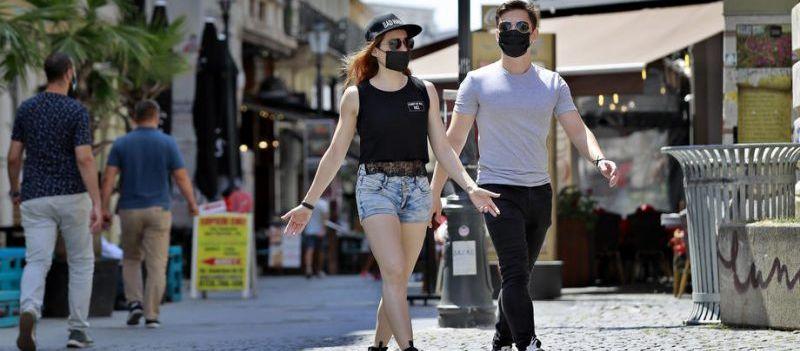
Last updated: 11.04.2022
Romania covid-19 travel restrictions & entry rules.
If you’re looking for up to date info on Romania's Covid-19 travel restrictions and entry requirements due to the pandemic - this article is for you. Find out about entry rules for tourists, vaccination, quarantine and test requirements, public safety measures and all things Covid-related to help you plan your visit in 2022.
Also - should you visit Romania during Covid-19? YES! What's are the best things to do or visit in these conditions? Read on! Important: in 2021 we had a VERY busy season during June - Sept when everyone decided to travel and infection numbers were low. Since all our tours are private and we received a lot of requests many short-notice bookings got declined due to guides and their colleagues being unavailable.
- we know travel during Covid-19 can be unpredictable but if you're planning to visit Romania in 2022 please consider booking your tours at least 7-10 days in advance or more to secure our guides' availability and give them time to prepare. If you need to cancel for 90% of our tours we only need 1-3 days advance notice to get a full refund
After the huge wave of Covid infections with the Omicron variant in Jan-Feb all over Europe, it seems the Coronavirus has become endemic and no longer as serious since everyone is either vaccinated or has developed immunity. Many countries all over Europe have lifted restrictions and no longer have travel requirements or checks in place.
The same is true for Romania: since 8.03 the state of alert has been lifted which means there are NO RESTRICTIONS that apply to foreign travellers wanting to visit Romania no matter where they come from. In fact, since 21.01 the colour-coded list of countries and travel restrictions that apply have been discontinued.
So travel and tourism in Romania is once again normal - hurray! Nevertheless, all our tours run with safety measures in place (cars are disinfected, guides weak masks in the car, etc.) as we want to protect everyone's health and continue welcoming tourists the safest conditions for everyone.
The pandemic hasn’t changed the beauty of our country. On the contrary, spending time outdoors going hiking, seeing the beautiful countryside of Transylvania and generally having an active holiday is the best – and safest – thing to do for our body and mind after so much time spent indoors!
Since 2017 when Romanian Friend was created our intention has always been to support small businesses and communities through responsible tourism. The past 2 years have been very challenging for everyone in the industry, with lots of people going out of business. So please consider booking tours with locals if you want to give back to the local economy, people and places you'll visit in Romania. We make sure all our tours use local products and services!
- Last update: 11.04.2022 - we’re going to keep this article updated so please check it regularly. And if you have any questions contact us – we’re happy to help!
Table of contents
1. Entry rules for foreign citizens into Romania
2. covid-19 public safety measures, 4. what to visit in romania during covid-19.
As of 8 March 2022 ALL foreign citizens are allowed to enter Romania for tourism and general purposes as the state of alert was lifted. No restrictions or checks apply.
Providing proof of vaccination, a certificate of recovery from COVID-19 or negative test results is no longer necessary, and travellers are not subject to quarantine anymore. No need to fill in a passenger locator form.
Put simply - Romania is open for tourism - so come visit!
Most restrictions have been lifted and all safety measures have now a "recommended" status
- wearing a mask is NOT mandatory anymore (indoors or outdoors) but is recommended, especially indoors
- all businesses and public institutions can set their own rules regarding wearing masks - so check for those
- pubs, cafes and restaurants can work normally at maximum capacity
- Covid checks are NOT required to access public facilities
- tourist attractions such as castles and museums are open normally
Getting tested for Covid-19 in Romania is easy and simple. In every city there are private laboratories who do PCR tests (throat and/or nose swabs) and quick antigen tests (and issue a document for travel purposes). In most cases no appointment is required to get tested, you can just walk in. You can get the results over email or in a SMS in Romanian and/or English.
To find a Covid-19 test center use Google when in Romania (search for 'test Covid [city name]') or ask someone who speaks Romanian for help with finding the nearest testing centre. Call in advance to make sure they can take you and give you results within the time limit you need. You'll get results within as little as 12h and costs range from 20 - 50 Euro depending on how fast you need them.
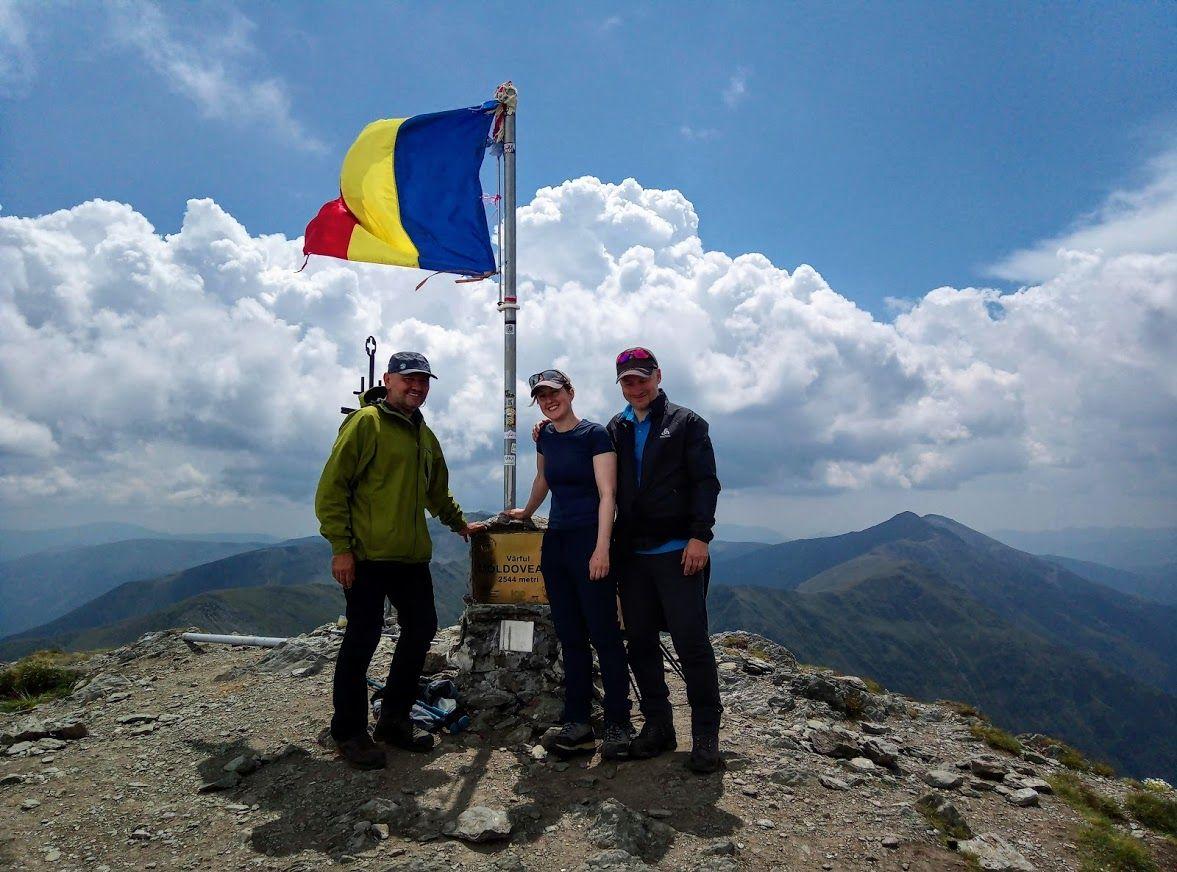
Outdoor tours and trips are the best choices for tours and trips in Romania during Covid-19 since it's easier to maintain social distancing and there's a low risk of getting the virus. After spending a few months in lockdown, nothing feels more liberating than reconnecting with nature and exploring the great outdoors once again. Thankfully, Romania has some of the most beautiful natural landscapes in all of Europe, so there are lots of options to choose from.
You can go on nature and wildlife tours (Romania has the highest biodiversity in Europe), go hiking, or explore the Romanian countryside, with its peaceful traditional villages, most of which have had no confirmed Coronavirus cases. Check our Romania hiking guide for more info.
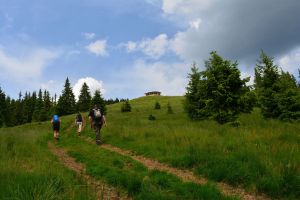
Romanian Adventures & Wildlife Tours
Since the Carpathian Mountains cover one-third of the country, tours and trip in nature are the easiest to go for. No matter if you start your adventure from the capital Bucharest or other major cities, you'll find lots of natural attractions around them, and dreamy landscapes are never more than a short drive away.
Ready to get started? Depending on where you land, here are our top picks:
- from Bucharest
The capital is always nice to visit and there are plenty of indoor (Palace of Parliament, Ceausescu’s Home, etc.) and outdoor (Village Museum, Cismigiu Garden, etc.) tourist attractions to choose from. Check our Bucharest city guide for more info.
From Bucharest, you can take head East to visit the Black Sea and the famous Danube Delta - the second-largest river delta in Europe and a UNESCO-protected biosphere . This natural gem is a birdwatcher's paradise (it's home to more than 300 species) and we recommend you spend at least 2-3 days in the area so you can go on special tours. Apart from the lakes, swamps, canals, and backwaters, you can also see sand dunes and forests with ancient oak trees.
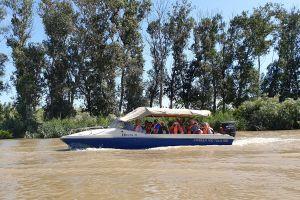
2-Day Danube Delta & Birdwatching Tour from Bucharest
Start from: Bucharest
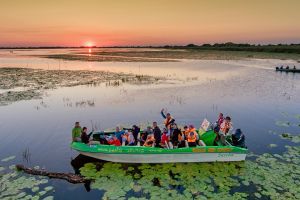
4-Day Danube Delta: Birds, Letea Village & Lakes [Group Trip]
Start from: Tulcea
If you're looking for more other tours and day trips from Bucharest we recommend hiking to the Bucegi Mountains, Cozia National Park, or the Iezer-Papusa Mountains. Visiting the famous Bran and Peles Castles is also possible.
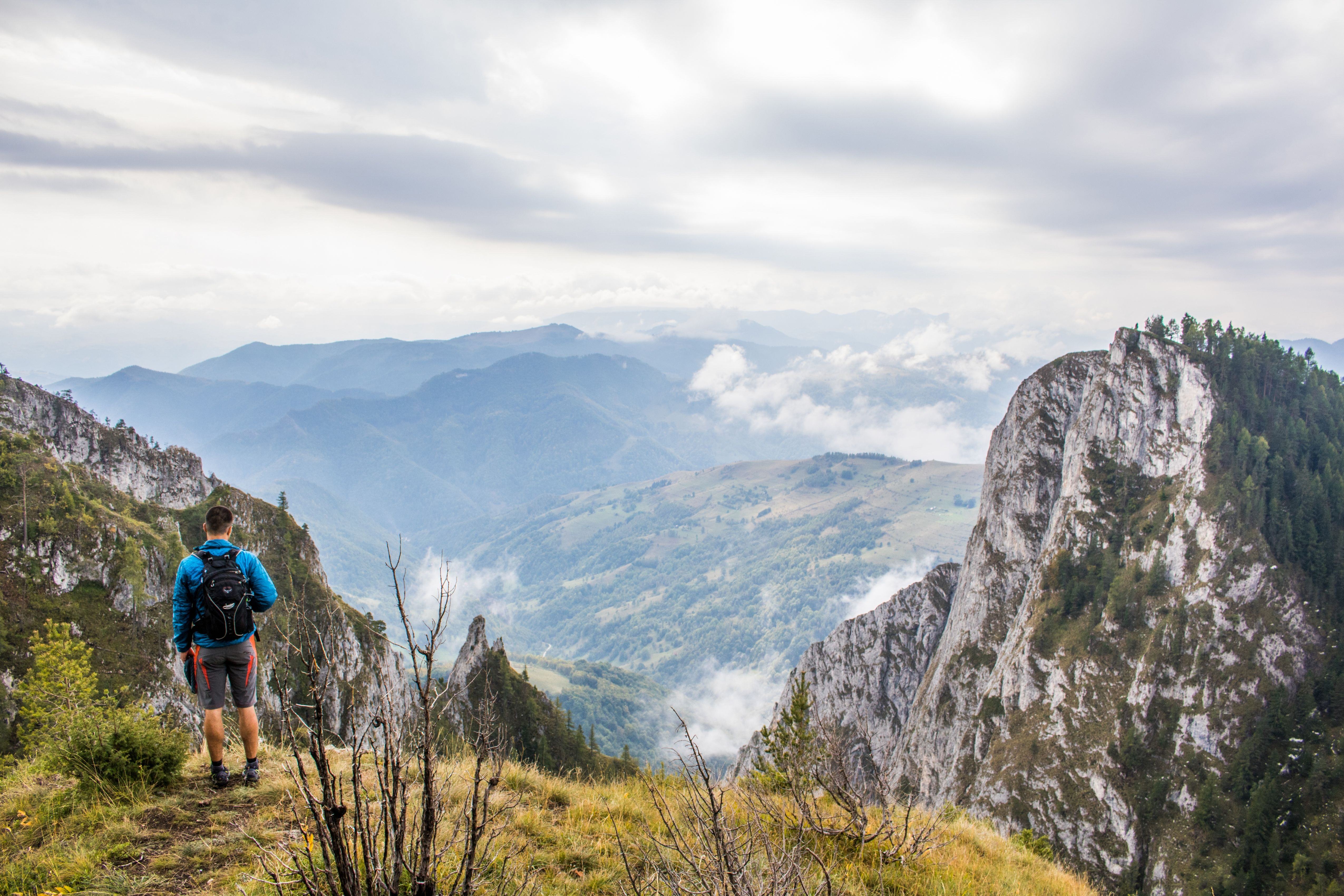
- from Cluj-Napoca
Cluj-Napoca is Romania's largest city after Bucharest and one of the most important cultural centers. Once you've explored its medieval landmarks and architectural points of interest, you can enjoy the nearby natural attractions. Cluj is conveniently located to two of the best:
Apuseni Natural Park is just 100 km West from Cluj, and you can get there in about 2 ½ hours by car. Some of the unmissable attractions in Apuseni Natural Park include Bride Veil's Waterfall, Scarita Belioara natural reserve, and Cetățile Ponorului. There are more than 1800 caves here (Bear's Cave and Scarisoara Ice Cave are the two most popular ones) and if you're an adventurous soul, you can also try extreme activities like water rafting on Crisul Pietros or hiking in Poiana Ponor.
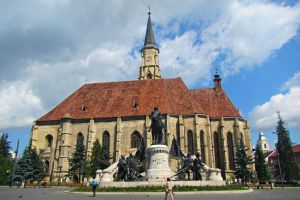
Tours & Day Trips in Cluj-Napoca
From Cluj, you can also head North to *Maramures*, whom many consider the most culturally representative Romanian region. Apart from having breathtaking natural landscapes (70% of Maramures is made of forests), this region also has unique traditional churches, 8 of which have been acknowledged by UNESCO. Maramures is one of Romania's more traditional regions, and once you come here, you'll be charmed by the simple way of life and the hospitality of the locals. True to its name, Coronavirus hasn't affected Maramures at all!
In June, the European Best Destinations Organization (EBD) included Sibiu on the list of safest places in Europe to visit after COVID-19. Founded in the 12th century, Sibiu has been under German influence for much of the medieval period, and you can see this in the architecture. Some of the most important attractions in Sibiu include Big Square (Piata Mare), the Brukenthal National Museum, the Bridge of Lies, and the ASTRA National Museum Complex.
After exploring Sibiu, you can go on a day trip to discover the traditional Transylvanian villages scattered around it. You'll see small wooden houses built on stone bases, hand-painted ceramics and icons painted on glass, and sample homemade culinary specialties. Or go visit the superb Corvin Castle!
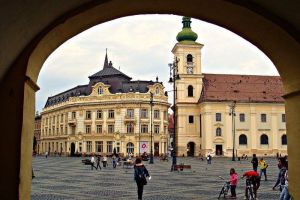
Tours & Day Trips in Sibiu
From Sibiu, you can also get to the Transfagarasan Highway , a spectacular road that connects the South of Romanian with Transylvania, spans for 90km, and reaches an altitude of over 2,000 meters. The views are fantastic up here, and along it you can see other famous attractions such as Vidraru Lake and Balea Lake.
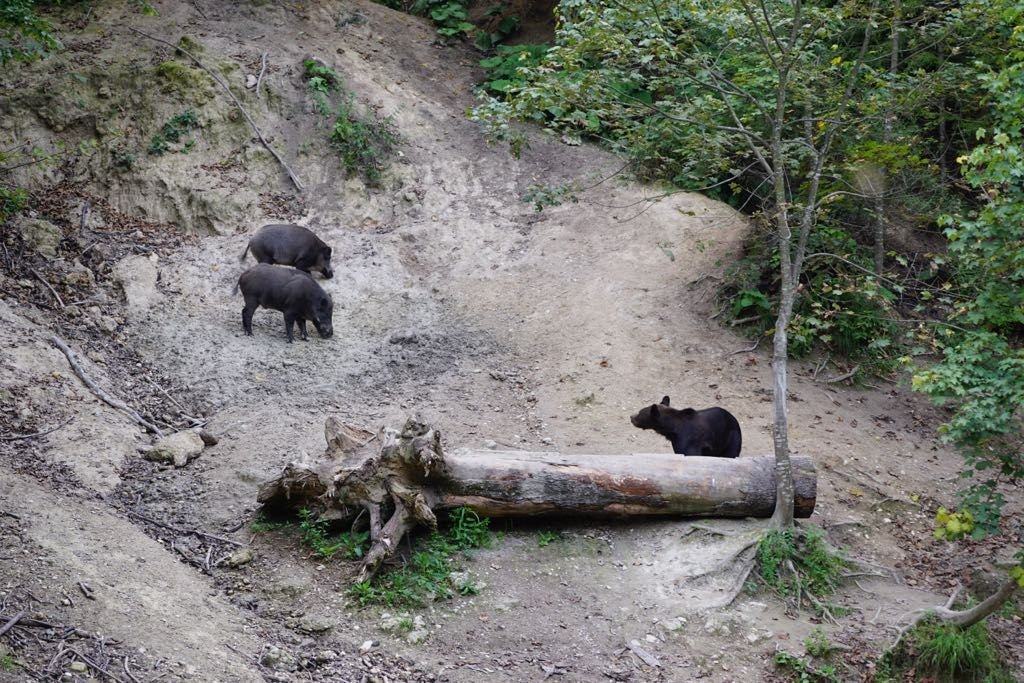
- from Brasov
The medieval town of Brasov is a gateway to Transylvania and one of the best starting points for day trips and wildlife tours. There are lots of options for outdoor activities available.
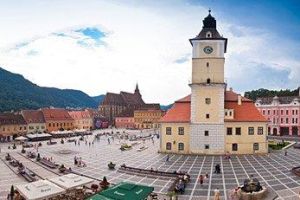
Tours & Day Trips in Brasov
You can go on hiking tours in Piatra Craiului or Bucegi Mountains, visit Râşnov Fortress or Bran Castle or go on wildlife watching tours to look for bears and other animals.
All our tour guides in strict compliance with the latest Covid-19 safety regulations. The cars they use are disinfected regularly and wearing a mask in the car is mandatory. Not mandatory when out in the mountains :)
If you're interested in organising a private trip or want more information please contact us -- we're happy to help!
Check our tours
- By category
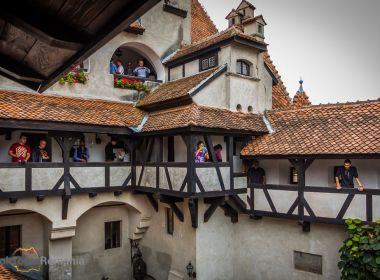
Local insights from Romania
4 times a year we prepare a newsletter with local stories, places and our special insights about Romanian culture and local life that will inspire you to visit our country and have an authentic local experience. Would you like to get it?
#romanianfriend

- Special Offers

Romania - Travel and Tourism information
Authentic, Natural and Cultural are the words that best capture the essence of Romania, a dynamic country rich in history , arts and scenic beauty.
Romania offers countless unique travel experiences that are waiting to be discovered. A journey of three to four hours, by car or train, can take you from the Danube River to a beautiful, intact, medieval town; from Bucharest - Romania's capital city - to the Black Sea ; from Southern Transylvania to Bucovina or Maramures regions.
Take a step back in time as you visit one of the unique Painted Monasteries in Bucovina, the perfectly preserved hilltop citadel of Sighisoara or an authentic, centuries-old, village in Maramures.
Explore Romania's many architectural treasures and experience its vibrant and flourishing arts scene. We are looking forward to welcoming you to Romania!
Romania news and events:
» Salvador Dali, Bucharest Special Exhibition 2024 » Romania partially joined the Schengen area of free movement , air and sea border control lifted as of March 31, 2024. » Upcoming Romania Tours. » New Danube River Cruise Itineraries.
RomaniaTourism is an idependent self-funded non profit initiative.
Featured Hotel: Marmorosch | Autograph Collection

Featured Car Rental Company: Expedicar

Authentic Romania
The countryside is the heart and soul of Romania, where peasant culture remains a strong force and medieval ways prevail like nowhere else in Europe.

Natural Romania
Recognized as the world's third most biologically diverse area, the Danube Delta has been recognized by UNESCO for its outstanding universal value.
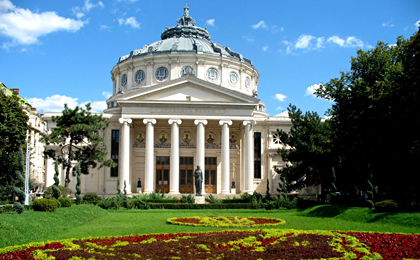
Cultural Romania
Romanians' vivid imagination and intense spirituality have always been expressed through their architecture, music, crafts and traditions.
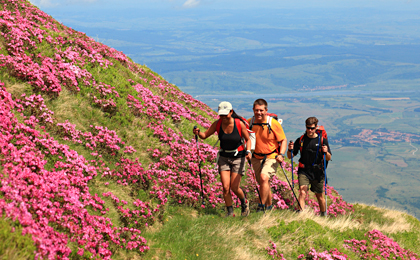
Active Romania
With a terrain that ranges from steep and challenging to gentle and pleasant, Romania offers hikers and bikers of all skills and levels something to enjoy.
General Information about Romania
Fast Facts, Location, Geography, Climate, People, History, Government, Economy, Little Known Facts about Romania, Romania in the Press
Romania Main Visitor Attractions
Transylvania Medieval Towns, Castles & Fortresses, Danube Delta, The Carpathian Mountains, The Painted Monasteries, Medical Spas, Traditional Villages, World Heritage Sites, Black Sea Resorts
Special Interest Travel
Arts and Crafts, Architecture, Authentic Experiences, Active Vacations , Danube River Cruises, Dracula Legend, Festivals & Events, Food & Wine, Genealogy Searches, Jewish Heritage, Saxon Heritage, Traditions
Romania Historical Regions
Banat & Crisana , Bucovina & Moldova , Dobrogea , Maramures , Transylvania , Walachia
Main Cities in Romania
Bucharest, Alba Iulia, Arad, Baia Mare, Brasov, Braila, Cluj, Constanta, Craiova, Deva, Galati, Iasi, Oradea, Satu Mare, Sibiu, Sighisoara, Suceava, Timisoara, Targu Jiu, Targu Mures, Tulcea.
Romania Trip Planner
Entry Requirements, Transportation, Maps, Practical Information, Sample Itineraries, Upcoming Tours, Special Offers, Travel Advisory.
Special Offers & Best Buys
Tours and Packages Transportation
What travel guides say about Romania:
"What I like about Romania is that you know you are in a different place, in a good way." (Jayne Clark, USA Today)
"… why should you go to Romania? The straight answer is because it is one of the most beautiful countries of Southeast Europe." (The Blue Guide)
"Considered by many the most beautiful country in Eastern-Europe, Romania still claims regions that seem bastions of a medieval past long since lost elsewhere." (Fodor's Eastern and Central Europe)
"Few regions offer a more dazzling display of cultural and artistic treasures than Romania." (Smithsonian Journeys)
"No journey to Eastern Europe would be complete without paying a visit to Romania… Outstanding landscapes, a huge diversity of wildlife…" (The Rough Guide)
"I had no idea what to expect when I first visited Romania. What I found on arrival was a budget-friendly destination brimming with hearty food, amazing natural landscapes, and a fraction of the tourists found elsewhere in Europe." ( Nomadic Matt )
Romania’s mountain scenery, its great diversity of wildlife and cultures, and a way of life that at times seems little changed since the Middle Ages, leave few who visit unaffected. ( Rough Guides )
"Romania has majestic castles, medieval towns, great hiking and wildlife…" (The Lonely Planet)
Travelling to Romania: A short guide to the new Passenger Locator Form
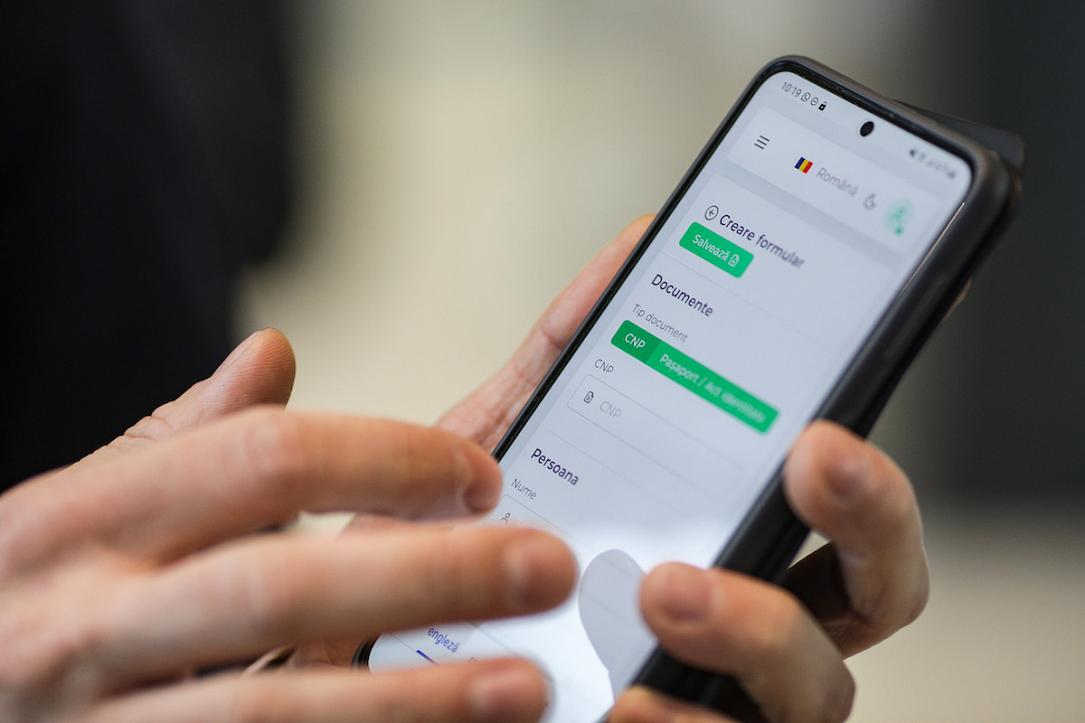
Irina Marica
Like this article? Share it with your friends!
Starting December 20, all persons entering Romania must complete the Passenger Locator Form (PLF). The document helps the public health authorities conduct epidemiological investigations faster and take the necessary measures to test or isolate infected people. Below is a short guide to the new PLF.
The Passenger Locator Form includes various information such as the passenger’s name and surname, identification and contact details; the country, region and locality from which he/she travels to Romania, including those in transit; the location and destination address in Romania; the means of transport used to travel to Romania; the date of arrival in Romania; and data about accompanying minors if it’s the case.
The form can be accessed online at Plf.gov.ro. All travellers have to complete it, regardless of whether they travel by plane, train, road or sea. An email address is necessary to log in and generate the document.
The PLF must be completed in the 24 hours before entering Romania or within 24 hours of crossing the border. It can be completed electronically from a mobile phone, tablet or computer. The border authorities are in charge of checking the form.
If family members travel together, the form can be completed by a single adult member for all family members. For minors entering the territory of Romania, the obligation to complete the form goes to the parents, guardians or legal representatives.
Travellers who don’t complete the PLF risk fines between RON 2,000 and RON 3,000.
Here are the Romanian Border Police’s answers to other possible questions travellers might have about the PLF:
What data do I enter in the form?
- the personal identification number (CNP) and other travel data for citizens travelling with a Romanian identity card
- data from the passport or the identity card, for the persons who do not travel based on the Romanian identity card
Do I have to mention all the countries I have passed through?
You need to enter data about the country you’ve visited but also about the countries you have transited in the last 14 days. Providing false data is a criminal offence and is punishable by law.
If I made a mistake, can I edit the form?
Once saved, the form cannot be changed. If you want to update the information in the form, you can fill it out again and save it. All the forms you filled in when entering Romania can be viewed in the “Form list” menu in the application.
Where is the form data stored?
All forms are stored in the communications infrastructure of the Romanian state. The data is physically and legally protected and is not passed on to third parties.
Who has access to the personal data filled in the form?
The data completed in the form are only accessed by authorized employees of the public health directorates and may be used strictly for the purpose of conducting epidemiological investigations. The Special Telecommunications Service (STS) provides the specific cyber security measures for the computer system used to issue the PLF.
How do I fill out the form if I don’t have an email address?
Those who do not have an email address can ask family members or other close friends to help them fill out the form.
Further details are available here (in Romanian) and here (in English).
(Photo source: Inquam Photos/Octav Ganea)

Recommended stories

Romania Insider Free Newsletters
Editor's picks, latest press releases, from our partners.
Cookies on GOV.UK
We use some essential cookies to make this website work.
We’d like to set additional cookies to understand how you use GOV.UK, remember your settings and improve government services.
We also use cookies set by other sites to help us deliver content from their services.
You have accepted additional cookies. You can change your cookie settings at any time.
You have rejected additional cookies. You can change your cookie settings at any time.
Beta This is a test version of the layout of this page. Take the survey to help us improve it
Travelling to Romania
Includes travel advice and how to get married abroad.
Subscriptions
- Get emails for this topic Travelling to Romania
Getting married or registering a civil partnership abroad
Find out how to get the documents you’ll need to get married or form a civil partnership overseas and how much they’ll cost.
Reduce your risk from terrorism while abroad
How to minimise your risk, and what to do if there's a terrorist attack.
Romania travel advice
FCDO travel advice for Romania. Includes safety and security, insurance, entry requirements and legal differences.
Is this page useful?
- Yes this page is useful
- No this page is not useful
Help us improve GOV.UK
Don’t include personal or financial information like your National Insurance number or credit card details.
To help us improve GOV.UK, we’d like to know more about your visit today. Please fill in this survey (opens in a new tab) .
You are using an outdated browser. Upgrade your browser today or install Google Chrome Frame to better experience this site.
Travel Health Notices
Search By Country Name or Disease
CDC uses Travel Health Notices (THNs) to inform travelers about global health risks during outbreaks, special events or gatherings, and natural disasters, and to provide advice about protective actions travelers can take to prevent infection or adverse health effects.
A THN can be posted for: 1) a disease outbreak (higher number of expected cases) in a country or region, 2) sporadic cases of a disease in an unusual or new geographic location, 3) natural and human-made disasters with severe environmental health risks, or infrastructure damage that would limit healthcare services availability and 4) mass gathering events that can lead to disease outbreaks. See types of travel notices .
Level 4 - Avoid All Travel
- Currently there are no Travel Health Notices at this level.
Level 3 - Reconsider Nonessential Travel
Level 2 - practice enhanced precautions.
- There is an outbreak of Zika in the state of Maharashtra, India. All travelers to Maharashtra should take steps to prevent mosquito bites and sexual transmission of Zika virus during and after travel. Zika in the state of Maharashtra, India765 New Zika in the state of Maharashtra, India August 22, 2024 There is an outbreak of Zika in the state of Maharashtra, India. All travelers to Maharashtra should take steps to prevent mosquito bites and sexual transmission of Zika virus during and after travel. Read More >>
- Some international destinations have circulating poliovirus. Before any international travel, make sure you are up to date on your polio vaccines. Country List : Afghanistan, Algeria, Benin, Cameroon, Central African Republic, Chad, Côte d'Ivoire (Ivory Coast), Democratic Republic of the Congo, Madagascar, Mozambique, Niger, Nigeria, Pakistan, Somalia, Yemen, Indonesia, Sudan, Mali, Botswana, Zambia, Republic of the Congo , Burundi, Burkina Faso, Kenya, Tanzania, including Zanzibar, Guinea, Mauritania, Egypt, Zimbabwe, Angola, Liberia, Senegal, Sierra Leone, Ethiopia, The Gambia, Republic of South Sudan, UgandaGlobal Polio734 Updated Global Polio August 20, 2024 Some international destinations have circulating poliovirus. Before any international travel, make sure you are up to date on your polio vaccines. Destination List: Afghanistan, Algeria, Angola, Benin, Botswana, Burkina Faso, Burundi, Cameroon, Central African Republic, Chad, Côte d'Ivoire (Ivory Coast), Democratic Republic of the Congo, Egypt, Ethiopia, Guinea, Indonesia, Kenya, Liberia, Madagascar, Mali, Mauritania, Mozambique, Niger, Nigeria, Pakistan, Republic of South Sudan, Republic of the Congo, Senegal, Sierra Leone, Somalia, Sudan, Tanzania, including Zanzibar, The Gambia, Uganda, Yemen, Zambia, Zimbabwe Read More >>
- There is an outbreak of Oropouche in Cuba. Oropouche is spread by the bite of infected midges (small flies) and mosquitoes.Oropouche in Cuba764 New Oropouche in Cuba August 16, 2024 There is an outbreak of Oropouche in Cuba. Oropouche is spread by the bite of infected midges (small flies) and mosquitoes. Read More >>
- There is an outbreak of clade I mpox in the Democratic Republic of the Congo (DRC). Countries sharing borders with DRC are considered at risk for spread. Country List : Burundi, Central African Republic, Democratic Republic of the Congo, Republic of the Congo , Rwanda, UgandaClade I Mpox in the Democratic Republic of the Congo and Neighboring Countries763 Clade I Mpox in the Democratic Republic of the Congo and Neighboring Countries August 07, 2024 There is an outbreak of clade I mpox in the Democratic Republic of the Congo (DRC). Countries sharing borders with DRC are considered at risk for spread. Destination List: Burundi, Central African Republic, Democratic Republic of the Congo, Republic of the Congo, Rwanda, Uganda Read More >>
- There are confirmed and suspect cases of diphtheria in several regions in Guinea. Vaccination against diphtheria is essential to protect against disease. If you are traveling to an affected area, you should be up to date with your diphtheria vaccines.Diphtheria in Guinea751 Diphtheria in Guinea April 23, 2024 There are confirmed and suspect cases of diphtheria in several regions in Guinea. Vaccination against diphtheria is essential to protect against disease. If you are traveling to an affected area, you should be up to date with your diphtheria vaccines. Read More >>
- Yellow fever cases remain elevated in Nigeria, after an outbreak was first reported in November 2020. Travelers to Nigeria should take steps to prevent yellow fever by getting vaccinated at least 10 days before travel and taking steps to prevent mosquito bites.Yellow Fever in Nigeria392 Yellow Fever in Nigeria March 28, 2024 Yellow fever cases remain elevated in Nigeria, after an outbreak was first reported in November 2020. Travelers to Nigeria should take steps to prevent yellow fever by getting vaccinated at least 10 days before travel and taking steps to prevent mosquito bites. Read More >>
- There is an outbreak of diphtheria in Niger. If you are traveling to an affected area, you should be up to date with your diphtheria vaccines.Diphtheria in Niger752 Diphtheria in Niger February 25, 2024 There is an outbreak of diphtheria in Niger. If you are traveling to an affected area, you should be up to date with your diphtheria vaccines. Read More >>
- There is an outbreak of diphtheria in several states in Nigeria. Vaccination against diphtheria is essential to protect against disease. If you are traveling to an affected area, you should be up to date with your diphtheria vaccines.Diphtheria in Nigeria 740 Diphtheria in Nigeria February 16, 2024 There is an outbreak of diphtheria in several states in Nigeria. Vaccination against diphtheria is essential to protect against disease. If you are traveling to an affected area, you should be up to date with your diphtheria vaccines. Read More >>
Level 1 - Practice Usual Precautions
- There are outbreaks of Oropouche in parts of Brazil, Bolivia, Colombia, and Peru. Oropouche is spread by the bite of infected midges (small flies) and mosquitoes. Country List : Brazil, Bolivia, Peru, ColombiaOropouche in South America758 Updated Oropouche in South America August 16, 2024 There are outbreaks of Oropouche in parts of Brazil, Bolivia, Colombia, and Peru. Oropouche is spread by the bite of infected midges (small flies) and mosquitoes. Destination List: Bolivia, Brazil, Colombia, Peru Read More >>
- Many international destinations are reporting increased numbers of cases of measles. Country List : Afghanistan, Angola, Benin, Cameroon, Central African Republic, Chad, Côte d'Ivoire (Ivory Coast), Democratic Republic of the Congo, Djibouti, Ethiopia, Gabon, India, Indonesia, Liberia, Niger, Nigeria, Pakistan, Republic of the Congo , Senegal, Somalia, Republic of South Sudan, Sudan, Togo, Yemen, Zambia, Kyrgyzstan, Armenia, Mauritania, Lebanon, Equatorial Guinea, Syria, Ghana, Kazakhstan, Burkina Faso, Turkey, Qatar, United Arab Emirates, Burundi, Romania, Malaysia, Russia, Azerbaijan, Sri Lanka, Uzbekistan, Philippines, Austria, Belarus, Georgia, Mali, Bosnia and Herzegovina, San Marino, Bhutan, Guinea, MozambiqueGlobal Measles743 Updated Global Measles August 14, 2024 Many international destinations are reporting increased numbers of cases of measles. Destination List: Afghanistan, Angola, Armenia, Austria, Azerbaijan, Belarus, Benin, Bhutan, Bosnia and Herzegovina, Burkina Faso, Burundi, Cameroon, Central African Republic, Chad, Côte d'Ivoire (Ivory Coast), Democratic Republic of the Congo, Djibouti, Equatorial Guinea, Ethiopia, Gabon, Georgia, Ghana, Guinea, India, Indonesia, Kazakhstan, Kyrgyzstan, Lebanon, Liberia, Malaysia, Mali, Mauritania, Mozambique, Niger, Nigeria, Pakistan, Philippines, Qatar, Republic of South Sudan, Republic of the Congo, Romania, Russia, San Marino, Senegal, Somalia, Sri Lanka, Sudan, Syria, Togo, Turkey, United Arab Emirates, Uzbekistan, Yemen, Zambia Read More >>
- Dengue is a year-round risk in many parts of the world, with outbreaks commonly occurring every 2–5 years. Travelers to risk areas should prevent mosquito bites. Country List : Brazil, Burkina Faso, Colombia, Costa Rica, Ecuador, including the Galápagos Islands, French Guiana (France), Guatemala, Guyana, Honduras, Laos, Mali, Mauritius, Mexico, Panama, Samoa, Singapore, Sri Lanka, Sudan, Uruguay, Afghanistan, Cape Verde, Cuba, Ghana, El Salvador, French Polynesia, including the island groups of Society Islands (Tahiti, Moorea, and Bora-Bora), Marquesas Islands (Hiva Oa and Ua Huka), and Austral Islands (Tubuai and Rurutu), IranGlobal Dengue762 Updated Global Dengue August 14, 2024 Dengue is a year-round risk in many parts of the world, with outbreaks commonly occurring every 2–5 years. Travelers to risk areas should prevent mosquito bites. Destination List: Afghanistan, and Austral Islands (Tubuai and Rurutu), and Bora-Bora), Brazil, Burkina Faso, Cape Verde, Colombia, Costa Rica, Cuba, Ecuador, including the Galápagos Islands, El Salvador, French Guiana (France), French Polynesia, including the island groups of Society Islands (Tahiti, Ghana, Guatemala, Guyana, Honduras, Iran, Laos, Mali, Marquesas Islands (Hiva Oa and Ua Huka), Mauritius, Mexico, Moorea, Panama, Samoa, Singapore, Sri Lanka, Sudan, Uruguay Read More >>
- Some travelers who have spent time in Mexico have been infected with multidrug-resistant (MDR) Salmonella Newport. Salmonella Newport in Mexico732 Salmonella Newport in Mexico May 30, 2024 Some travelers who have spent time in Mexico have been infected with multidrug-resistant (MDR) Salmonella Newport. Read More >>
- There have been reports of Rocky Mountain spotted fever (RMSF) in people traveling to the United States from Tecate, in the state of Baja California, Mexico.Rocky Mountain Spotted Fever in Mexico 756 Rocky Mountain Spotted Fever in Mexico March 12, 2024 There have been reports of Rocky Mountain spotted fever (RMSF) in people traveling to the United States from Tecate, in the state of Baja California, Mexico. Read More >>
- An outbreak of extensively drug-resistant (XDR) typhoid fever in Pakistan is ongoing. Extensively drug-resistant infections do not respond to most antibiotics.XDR Typhoid Fever in Pakistan397 XDR Typhoid Fever in Pakistan May 30, 2023 An outbreak of extensively drug-resistant (XDR) typhoid fever in Pakistan is ongoing. Extensively drug-resistant infections do not respond to most antibiotics. Read More >>
Types of Notices
Visit U.S. Department of State's website for the latest Travel Advisories .
File Formats Help:
- Adobe PDF file
- Microsoft PowerPoint file
- Microsoft Word file
- Microsoft Excel file
- Audio/Video file
- Apple Quicktime file
- RealPlayer file
- Zip Archive file

COMMENTS
Romania. Romania. Travel Advisory. August 15, 2024. Romania - Level 1: Exercise Normal Precautions. Exercise normal precautions in Romania. ) to receive Alerts and make it easier to locate you in an emergency. U.S. citizens who travel abroad should always have a contingency plan for emergency situations. Review the.
FCDO travel advice for Romania. Includes safety and security, insurance, entry requirements and legal differences.
Reissued after periodic review without changes. Exercise normal precautions in Romania. Read the country information page for additional information on travel to Romania.. If you decide to travel to Romania: Enroll in the Smart Traveler Enrollment Program to receive Alerts and make it easier to locate you in an emergency.; Follow the Department of State on Facebook and X/Twitter.
Beginning March 31, 2024, Romania will became a Schengen Member State, joining the Schengen zone for air and sea travel. As of March 31, 2024, air and sea border control will be lifted and any days spent in Romania by U.S. citizens will count as stay in the Schengen zone. You must have a valid passport to enter Romania.
Romania follows Schengen area rules. Your passport must have: Check with your travel provider that your passport and other travel documents meet requirements. Renew your passport if you need to ...
Road travel. If you are planning to drive in Romania, see information on driving abroad and check the rules of the road in the RAC's Romania guide. The guide lists driving regulations and other ...
Starting December 20, 2021, all persons entering Romania must complete the Passenger Locator Form (PLF). You have to fill it in online (at plf.gov.ro) in the 24 hours before entering Romania or ...
Covid-19: Romania announces new entry restrictions officially. Romania's National Committee for Emergency Situations (CNSU), at its December 6 meeting, approved the rules (Decision 111/06.12. ...
If your travel plans in Romania include outdoor activities, take these steps to stay safe and healthy during your trip. Stay alert to changing weather conditions and adjust your plans if conditions become unsafe. Prepare for activities by wearing the right clothes and packing protective items, such as bug spray, sunscreen, and a basic first aid ...
For foreigners who are going to come to Romania for tourist purposes, in organized groups of at least 20 people, at the request of companies regulated by Law no. 31/1990, republished, with subsequent amendments and additions, members of the National Association of Travel Agencies from Romania, invitations are approved within 30 days from the ...
Do not travel from Romania to Ukraine. Pickpocketing and bag-snatching occur. Thefts from hotel rooms are common. Assault and theft happen on intercity trains. Keep your personal belongings close. Lock hotel and train compartment doors from the inside. Drink spiking is an issue, especially in Bucharest's Old Town.
Travelers arriving from a yellow zone country may be exempted from quarantine if the duration of their trip to Romania is less than three days (72 hours), and they can present a negative COVID-19 ...
FCDO travel advice for Romania. Includes safety and security, insurance, entry requirements and legal differences.
U.S.-Romania Relations. The United States established diplomatic relations with Romania in 1880 following Romania's independence, and 2020 saw the 140th anniversary of this relationship. The two countries severed diplomatic ties after Romania declared war on the United States in 1941; and re-established them in 1947.
Romania is safe and hospitable. All visitors are welcome! There are no events or situations - such as diseases, distress or unrest - threatening the personal safety or well-being of visitors. We do hope you will enjoy your visit to Romania and that the following information will be of interest to you. Travel to Romania given the Ukraine situation.
Romania entered the Schengen area on March 31, 2024. Air and maritime border controls are no longer in effect. Land border controls will remain in effect until further notice. Passport. Entry requirements vary depending on the type of passport you use for travel. Before you travel, check with your transportation company about passport requirements.
1. Entry rules for foreign citizens into Romania. As of 8 March 2022 ALL foreign citizens are allowed to enter Romania for tourism and general purposes as the state of alert was lifted. No restrictions or checks apply. Providing proof of vaccination, a certificate of recovery from COVID-19 or negative test results is no longer necessary, and travellers are not subject to quarantine anymore. No n
The Overseas Business Risk service offers information and advice for British companies operating in Romania on how to manage political, economic, and business security-related risks. FCDO travel ...
Irish visitors to Romania are encouraged to register with the Embassy. The official currency in Romania is the RON, often called Lei. Obtaining RON prior to travel can be difficult. However, on arrival cash can be withdrawn from ATMs. Visitors to Romania are advised to follow the guidance of national and local authorities and stay fully ...
Romania - Travel and Tourism information. Authentic, Natural and Cultural are the words that best capture the essence of Romania, a dynamic country rich in history, arts and scenic beauty.. Romania offers countless unique travel experiences that are waiting to be discovered. A journey of three to four hours, by car or train, can take you
The form can be accessed online at Plf.gov.ro. All travellers have to complete it, regardless of whether they travel by plane, train, road or sea. An email address is necessary to log in and ...
US State Dept Travel Information - Overall information about foreign travel for US citizens. To obtain an international driving permit (IDP). Only two organizations in the US issue IDPs: American Automobile Association (AAA) and American Automobile Touring Alliance (AATA) How to get help in an emergency?
FCDO travel advice for Romania. Includes safety and security, insurance, entry requirements and legal differences. Services and information. Benefits. Births, death, marriages and care. Business ...
Updated Global Dengue August 14, 2024 Dengue is a year-round risk in many parts of the world, with outbreaks commonly occurring every 2-5 years. Travelers to risk areas should prevent mosquito bites. Destination List: Afghanistan, and Austral Islands (Tubuai and Rurutu), and Bora-Bora), Brazil, Burkina Faso, Cape Verde, Colombia, Costa Rica, Cuba, Ecuador, including the Galápagos Islands ...